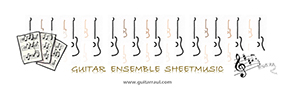Rogério Budasz
(…Resembling stock characters, black guitar players are found in Iberian literature — autos, entremeses and novels —as early as the late 16th century. An obvious reason for this was the possibility of including a musical number, played, sung, or both; but it also allowed the playwright to compose dialogues in Portuguese or Spanish Creole language —the so-called fala da Guiné, or língua de negros —or some caricature of it, thus extracting laughs from the audience.In colonial Brazil most actors and musicians on stage were black, but it is not yet clear whether black actors appeared on Spanish and Portuguese stages. (It is possible that in some contexts whites performed dressed as blacks.) Regardless of the racist tone of most of those texts, black actors and musicians who were trained in the Iberian tradition could have explored the possibilities of combining the structures, rhythms and timbres of Iberian, Central African and Western African music al styles. Of course, one needs to be cautious when examining that particular repertory, for a huge amount of European music of past centuries incorporated and distorted exotic elements with satirical or demeaning purposes…)
(Early Music 35:1, 2007)
Black guitar-players and early African-Iberian music in Portugal and Brazil





